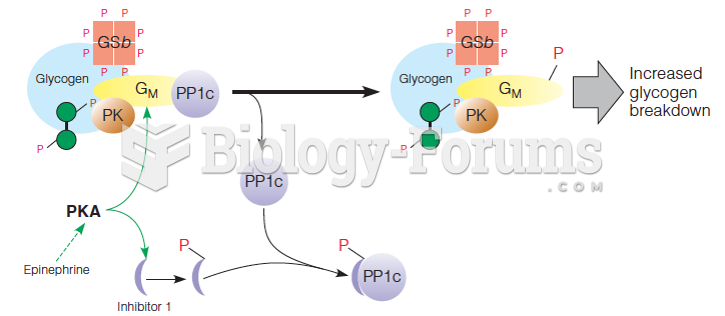|
|
|
Children with strabismus (crossed eyes) can be treated. They are not able to outgrow this condition on their own, but with help, it can be more easily corrected at a younger age. It is important for infants to have eye examinations as early as possible in their development and then another at age 2 years.
Vaccines cause herd immunity. If the majority of people in a community have been vaccinated against a disease, an unvaccinated person is less likely to get the disease since others are less likely to become sick from it and spread the disease.
The first oral chemotherapy drug for colon cancer was approved by FDA in 2001.
Though newer “smart” infusion pumps are increasingly becoming more sophisticated, they cannot prevent all programming and administration errors. Health care professionals that use smart infusion pumps must still practice the rights of medication administration and have other professionals double-check all high-risk infusions.
Limit intake of red meat and dairy products made with whole milk. Choose skim milk, low-fat or fat-free dairy products. Limit fried food. Use healthy oils when cooking.
 The sexual cycle of flowering plants involves alternation of sporophyte and gametophyte generations.
The sexual cycle of flowering plants involves alternation of sporophyte and gametophyte generations.
 Defensive mutualism involves species that receive food or shelter in return for providing protection
Defensive mutualism involves species that receive food or shelter in return for providing protection





